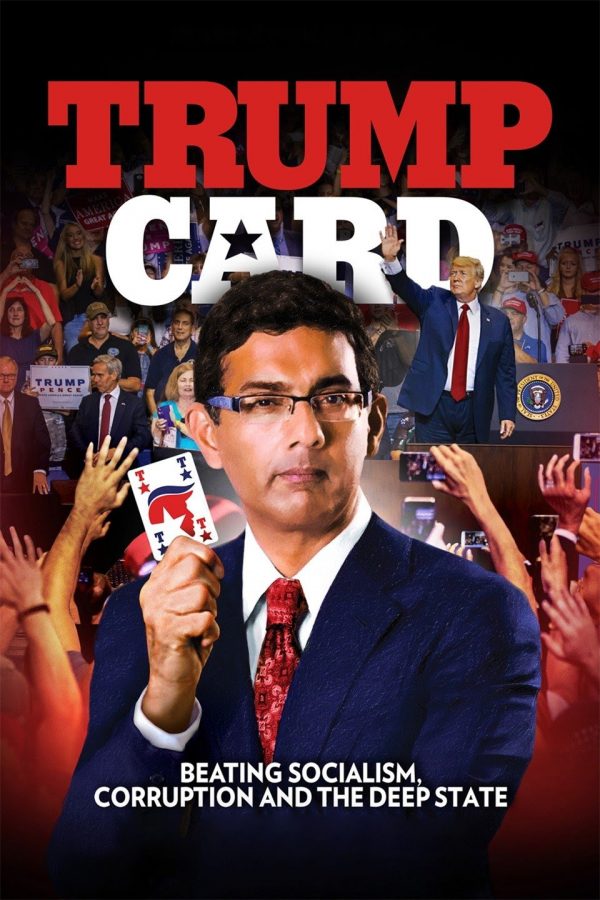“Trump Card,” a Terrifying Showcase of American Politics
October 26, 2020
Advertised as a documentary, this incredibly partisan film about the political career of Donald Trump depicts a heroic dictatorial figure leading the charge against a corrupt system. I would argue that the phrase “propaganda film” better fits the description of this movie, as the idolatry of the director shines through far more than the reliable facts that are seldom presented.
What is particularly baffling about the documentary is the selection of interviewees chosen to speak to the character of Donald Trump. Guests include right wing conspiracist Larry Sinclair and former Trump confidant George Papadopoulous (notably freshly released from prison after being found lying under oath to protect the president from accusations of collusion).
Rife with references to a “new civil war,” director Dinesh D’Souza fills the screen with comparisons of Republican traditional conservatism and Democratic Socialism. Comparing Bernie Sanders to a horseman of the apocalypse, there is a clearly painted picture of dissension away from American ideals under democratic leadership.
Another confusing and almost idol-worshipping aspect of this film is the depiction of Trump in the eyes of D’Souza. And even more intriguing is the relationship between D’Souza and the president. According to a BBC article on D’Souza, he first gained an audience as a “member of student-run conservative publication at (Dartmouth) that was known for sometimes controversial, inflammatory or racially tinged articles and commentary.” In the 2000s he entered a new era of conspiracism, claiming that the “”cultural left” was at fault for the 9/11 terrorist attacks, and that “American liberalism and the Democratic party were inextricably tied to fascism.” As he continued down the political path, he was later accused of tampering with campaign finances, leading to his conviction and subsequent dismissal from his presidential post at an evangelical university. Months later, President Trump used his executive power to pardon D’Souza of his crimes and welcome him back into the new Republican party under the presidency.
Ironically, the film itself presents a rather Orwellian depiction of the new state of affairs. If anything, this movie reaffirms the idolatry rampant within the Republican party of today’s political figures, showcased by D’Souza’s god-like reverence of the Commander-in-Chief. The piece itself views far more like a frustrating satire than a political documentary, and upon investigation of the motives of the director, it is clear why. Regardless of political affiliation, this movie offers little factual evidence or education, but could definitely push a swing voter over to the Democratic side due to the vapid and narcissistic propaganda that plays across the screen.


